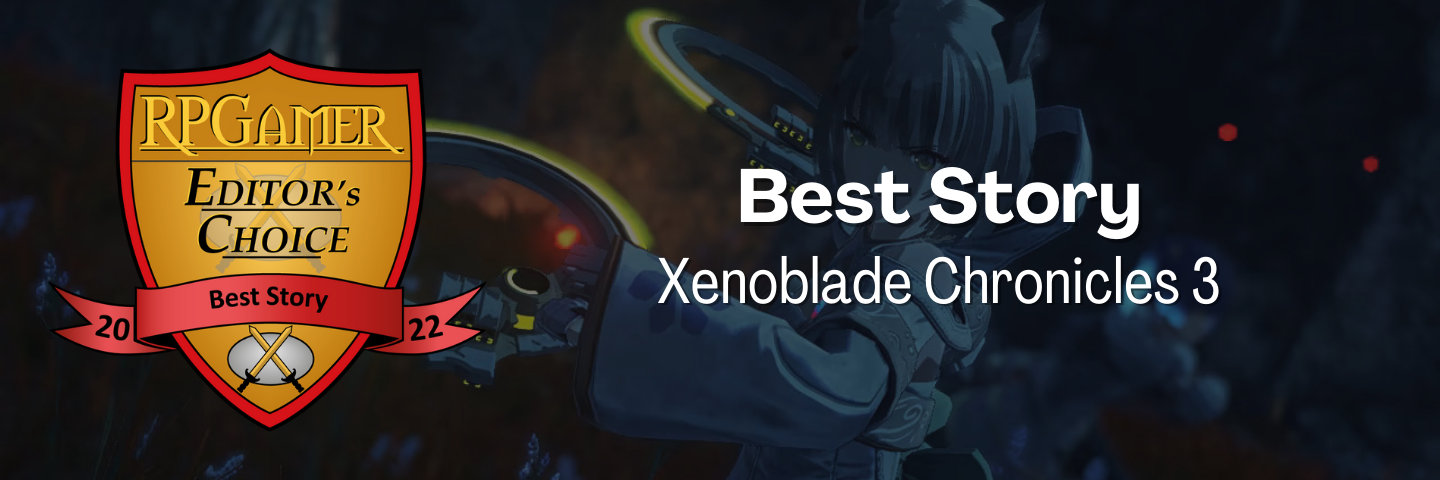| « Best Battle System |
Best Story |
Best Dialogue » |

Xenoblade Chronicles 3 had a big task. It had to live up to the hype of both Xenoblade Chronicles and Xenoblade Chronicles 2, while both building upon some of the threads that both had laid and ensuring that newcomers could come in without any prior knowledge. The great news was that Xenoblade Chronicles 3’s story not only accomplished those goals, but it arguably did it better than previous entries. The game opens up with an intense war scene chock full of casualties, and this sets the theme for what the story is about: war, revenge, and death. But its examination of these themes turns a world of destruction into stories of hope and striving for a better future, as its memorable and always developing cast of characters from different sides of the conflict come together.
It’s perhaps the darkest story of the series, and expresses the culmination of a story that started back in 1999. Creator Tetsuya Takahashi has said “the idea of “foreign things becoming one” is something we have been trying to express since the time of Xenogears back in the day. A person’s life is basically built up of relationships with other people.” That theme is met many years later with this entry. Mysterious figures with cosmic auras speak poetry, but it’s combined with the everyday struggles and relationships that come with survival and community and packed to the brim with the full range of emotions. From start to finish, Xenoblade Chronicles 3 is packed with deep, well-considered themes that can be fully appreciated by returning fans and newcomers alike.
Nihon Falcom’s The Legend of Heroes series has become famed for its narratives, which run the gamut from personal tales of growth to political intrigue and conspiracy, all the way up to fantastical mythological threats. The first game in the Crossbell duology, The Legend of Heroes: Trails from Zero is one of its more grounded entries, focusing on the newly established Special Support Section of the Crossbell Police Department. Following its four members as they solve problems around the city-state of Crossbell, it does an excellent job of steadily introducing and developing its characters and factions, as well as Crossbell itself. Its story has all the hallmarks of the series, demonstrating why it has such ardent fans through its incredible depth, memorable characters, and plenty of twists and turns along the way.
Triangle Strategy introduces a simple mechanic that revolutionizes storytelling: the Scales of Conviction. Through this framing device, even though the game always begins the same, there are plenty of different twists and turns the player can go down where some characters barely make an appearance in one story but are central to another. That each option can lead to very different outcomes while characters generally stay true to their core personality is a testament to the game’s storytelling ability. The party is always at the centre of a variety of moral and ethical dilemmas that don’t have easy solutions and can have unintended consequences. These choices are calculated and well-thought out, providing depth and insight each time as to why characters act the way they do. Yet, with all these choices and possibilities, the story still feels genuine and tight, causing every playthrough to feel like different what-if scenarios that are all equally intriguing and engaging.
by Jervon Perkins, Alex Fuller, and Ryan Costa










Recent Comments